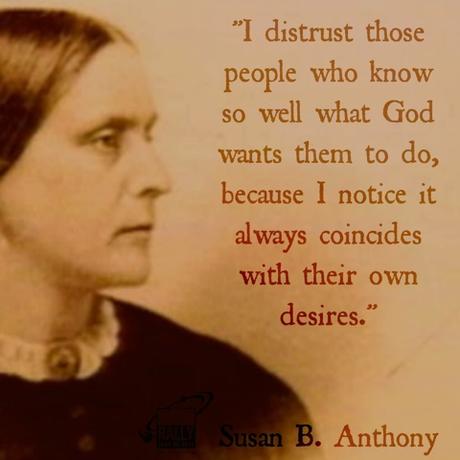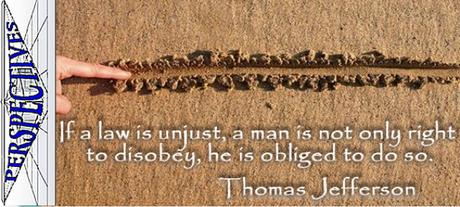 We often hear some say that Jesus is with them and against us or some group defined as other. But where would Jesus really side? The only hope we have of gaining a concrete and realistic understanding of who Jesus would side with is to look at who He sided with during His life and ministry.
We often hear some say that Jesus is with them and against us or some group defined as other. But where would Jesus really side? The only hope we have of gaining a concrete and realistic understanding of who Jesus would side with is to look at who He sided with during His life and ministry.The Pharisees had a works based understanding and Jesus seemed to have a more grace based understanding. Because of this works based theology the Pharisees had, so many people, most people arguably, were relegated to the status of "other."
Sinners like tax collectors, ritualisticly unclean men and women, theives, liars, adulterers and even the disabled like the blind or the sick such as lepers were the outcasts of the society Jesus lived in.
Jesus and His Apostles came upon a blind man. And the Apostles asked a question that was typical of Hewish culture of that time;
1And as Jesus passed by, he saw a man which was blind from his birth.
2And his disciples asked him, saying, Master, who did sin, this man, or his parents, that he was born blind?
3Jesus answered, Neither hath this man sinned, nor his parents: but that the works of God should be made manifest in him.
4I must work the works of him that sent me, while it is day: the night cometh, when no man can work.
5As long as I am in the world, I am the light of the world.
6When he had thus spoken, he spat on the ground, and made clay of the spittle, and he anointed the eyes of the blind man with the clay,
7And said unto him, Go, wash in the pool of Siloam, (which is by interpretation, Sent.) He went his way therefore, and washed, and came seeing.
8The neighbours therefore, and they which before had seen him that he was blind, said, Is not this he that sat and begged?
9Some said, This is he: others said, He is like him: but he said, I am he.
10Therefore said they unto him, How were thine eyes opened?
11He answered and said, A man that is called Jesus made clay, and anointed mine eyes, and said unto me, Go to the pool of Siloam, and wash: and I went and washed, and I received sight.
12Then said they unto him, Where is he? He said, I know not.
13They brought to the Pharisees him that aforetime was blind.
14And it was the sabbath day when Jesus made the clay, and opened his eyes.
15Then again the Pharisees also asked him how he had received his sight. He said unto them, He put clay upon mine eyes, and I washed, and do see.
16Therefore said some of the Pharisees, This man is not of God, because he keepeth not the sabbath day. Others said, How can a man that is a sinner do such miracles? And there was a division among them.
17They say unto the blind man again, What sayest thou of him, that he hath opened thine eyes? He said, He is a prophet.
18But the Jews did not believe concerning him, that he had been blind, and received his sight, until they called the parents of him that had received his sight.
19And they asked them, saying, Is this your son, who ye say was born blind? how then doth he now see?
20His parents answered them and said, We know that this is our son, and that he was born blind:
21But by what means he now seeth, we know not; or who hath opened his eyes, we know not: he is of age; ask him: he shall speak for himself.
22These words spake his parents, because they feared the Jews: for the Jews had agreed already, that if any man did confess that he was Christ, he should be put out of the synagogue.
23Therefore said his parents, He is of age; ask him.
24Then again called they the man that was blind, and said unto him, Give God the praise: we know that this man is a sinner.
25He answered and said, Whether he be a sinner or no, I know not: one thing I know, that, whereas I was blind, now I see.
26Then said they to him again, What did he to thee? how opened he thine eyes?
27He answered them, I have told you already, and ye did not hear: wherefore would ye hear it again? will ye also be his disciples?
28Then they reviled him, and said, Thou art his disciple; but we are Moses’ disciples. John 9:1-28 KJV
There are a few take always from this for me. One is that even Christ's disciples thought that this man was blind due to sin, even his parents sin. Jesus did not agree. The Pharisees see a miracle first hand and only see that a miracle was done on the sabbath and therefore it constituted work which made it wrong. They saw no righteousness in a miracle.
And they said it themselves, they are disciples of Moses, they did not say they were disciples of God. They were guilty of prophet worship. They loved debating the finer points of the law rather than uplifting the spirit behind those laws.they views the law in legalistic terms rather than in spiritual terms.
And the church leadership and many members are guilty of the exact same reasoning. Which turns a religion founded by perhaps the most inclusive teacher ever into a religion of exclusivity and elitism just as the Pharisees had done eons ago.
The Pharisees only loved and cherished those who were deemed good enough. Jesus loved and supported almost everyone. Aside from money changers in the temple, who were taking advantage of the poor, Jesus only seemed to rebuke the Pharisees and those like them.
Everyone else was cool in Jesus' book.
The main problem in a works based theology is that we are held to the standard of Jesus without ever being able to measure up. Thus we feel guilty and are even shamed for not measuring up in the same ways as those in authority over us. The irony is that they also fail to uphold every one of the 613 commandments of Mosaic law. But because they sin differently than we do somehow they are righteous and we are not.
"For all have sinned, and come short of the glory of God." Romans 3:23
"For none of these iniquities come of the Lord; for he doeth that which is good among the children of men; and he doeth nothing save it be plain unto the children of men; and he inviteth them all to come unto him and partake of his goodness; and he denieth none that come unto him, black and white, bond and free, male and female; and he remembereth the heathen; and all are alike unto God, both Jew and Gentile." 2 Nephi 26:33
See no matter how righteous we perceive a man to be whether he is the president of the church or an outcast "sinner" of any kind, compared to Christ they are not so different. None of us has the right to cast stones because none of us is without sin. And the only one who was, never cast a stone even when He could.
See when the Pharisees brought the adulteress to Christ, they drew a line in the sand so to speak in order to see where Jesus stood. They wanted to see who Jesus would stand with, the righteous men beloved of God or the worthless harlot begging for her life. Jesus chose to not cast a stone, remind the self righteous that they had no right to cast stones, and He chose to not condemn the adulteress but to simply say to go and sin no more.
I feel like any time people draw a line in the sand to divide God's children between us and them, between righteous and sinner, between beloved of God and worthless sinner, Jesus stands with those deemed as "other." Just as He did in His life. He stands with those who have been cast aside, those deemed as worthless, those labeled as sinner, those who are "other."
He gave His life to redeem us all even those who are told they don't deserve it.
Jesus told us to judge not lest we be judged by God by the same standard we judged by.
Jesus said this about holding grudges: "Therefore if thou bring thy gift to the altar, and there rememberest that thy brother hath ought against thee; Leave there thy gift before the altar, and go thy way; first be reconciled to thy brother, and then come and offer thy gift. Agree with thine adversary quickly, whiles thou art in the way with him; lest at any time the adversary deliver thee to the judge, and the judge deliver thee to the officer, and thou be cast into prison. Verily I say unto thee, Thou shalt by no means come out thence, till thou hast paid the uttermost farthing. Ye have heard that it was said by them of old time, Thou shalt not commit adultery: But I say unto you, That whosoever looketh on a woman to lust after her hath committed adultery with her already in his heart." Matthew 5:23-28
Jesus compares hate to murder and lust to adultery. Jesus intends us to live by a higher law than Mosaic law. We will never be as perfect as Christ, but we are meant be perfected in Christ. In Hebrew the word for perfect also means to be made whole or complete. We may have never been meant to be flawless like Christ but to be made whole by Him. We are not intended to save the world but neither are we free to abandon it. Sometimes we must shoot for the stars just to get off the ground.
The following quote is from a conference talk by the newly appointed Apostle Redlund: "My invitation to all of us is to evaluate our lives, repent, and keep on trying. If we don’t try, we’re just latter-day sinners; if we don’t persevere, we’re latter-day quitters; and if we don’t allow others to try, we’re just latter-day hypocrites.10 As we try, persevere, and help others to do the same, we are true Latter-day Saints."
This new policy is wrong. And we who feel that to be true, we who are affected directly or indirectly are not alone. The fault is an ugly bigoted, discriminatory and cowardly policy aimed at children. If this policy is meant to protect children why do the children suffer so much? No one needs this kind of "help." If you think this policy is loving then I'd hate to see what you think is harmful, hateful, or bigoted.
By outlining this new policy, the church has drawn a line in the sand and it is those defined as "other" who Christ comforts, stands by, and loves unconditionally.

